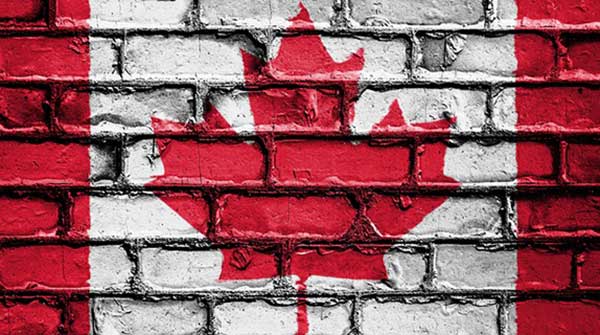Breaking down barriers to internal trade in Canada would boost prosperity and quality of life for Canadians
By Krystle Wittevrongel
and Gabriel Giguère
It shouldn’t be harder to ship goods from Lethbridge, Alberta, to Laval, Quebec than it is to ship them from Lethbridge to the Albertan side of Lloydminster.
And yet, interprovincial trade in Canada is hampered by a number of policies designed to restrict competition for a few well-connected sectors of our provincial economies. This comes at the expense of all Canadian consumers.
 Krystle Wittevrongel |
 Gabriel Giguère |
The signing of the Canadian Free Trade Agreement was supposed to tackle this long-standing economic problem in 2017.
Those barriers are not harmless either. When Statistics Canada took a look at it in 2017, barriers to provincial trade added an estimated seven percent to the cost of goods and services in this country.
 |
| Related Stories |
| Tear down these walls, premiers!
|
| Will Canada finally get interprovincial alcohol trade?
|
| Freer cross-Canada trade will most benefit Atlantic provinces
|
In terms of wages, it is estimated that removing those barriers to internal trade would yield an average increase in Canadians’ incomes by 5.5 percent, or $1,800. At a time when we’re all struggling with the rising cost of living, there is little doubt that quite a few families would breathe a huge sigh of relief were they to enjoy such an increase.
The opening up of internal trade has been slow, however, and policymakers in some provinces have remained dormant on the issues for the past six years.
Indeed, despite voicing support for the idea in Winnipeg this summer at the summit of Premiers, Quebec, New Brunswick, Nova Scotia, and Prince Edward Island have done nothing to address these issues since the agreement was first signed. And yet, these provinces’ economies would benefit significantly by eliminating these trade barriers, increasing the amount of wealth generated per person, and hence the standard of living.
And again, such increased wealth would be even more welcome at a time when the rising cost of living has left Canadian families struggling to balance their budgets.
However, not all provincial governments have embraced the lip-service approach. Since the Canadian Free Trade Agreement was signed, Manitoba has removed 56 percent of its listed exceptions to that agreement. Alberta, meanwhile, has abolished 78 percent of them.
So things are slowly moving in the right direction when it comes to sending goods across provincial borders, at least in some provinces. Canadians’ ability to get their professional qualifications recognized from sea to sea, however, isn’t progressing even as fast as that.
This is important as being able to move between provinces and territories without having to redo lengthy training could help solve worker shortages in parts of the nation.
And this is an area where Alberta is among the worst offenders. Alberta has nine times more stated occupational barriers than Manitoba and more than twice as many as Quebec.
These barriers matter, too. For instance, a licensed practical nurse trained in Ontario must undergo retraining to move to Alberta and practise their trade. And yet, as far as we know, taking an Albertan’s vital signs is no different than taking an Ontarian’s.
The same nonsensical restrictions apply to dental hygienists, paramedics, nurse practitioners and many other health professionals the province desperately needs.
But Alberta is not alone in this. All other provinces and territories, other than Nunavut, also have some form of restrictions preventing trained professionals from other provinces from practising their trades in their new home if they relocate.
By recognizing the skills of Canadians, no matter the province where they are trained, our provincial governments would increase opportunities, help solve shortages and create more wealth for all.
While the work provinces such as Alberta and Manitoba have done to make it easier for international applicants to practice their trade must be lauded, it is clear they need to do the same for out-of-province applicants.
Whether it’s goods or workers, removing barriers to their movement will increase prosperity and the quality of life for ordinary Canadians from coast to coast.
Krystle Wittevronge is a senior policy analyst and Alberta project lead, and Gabriel Giguère is a public policy analyst with the Montreal Economic Institute.
For interview requests, click here.
The opinions expressed by our columnists and contributors are theirs alone and do not inherently or expressly reflect the views of our publication.
© Troy Media
Troy Media is an editorial content provider to media outlets and its own hosted community news outlets across Canada.

